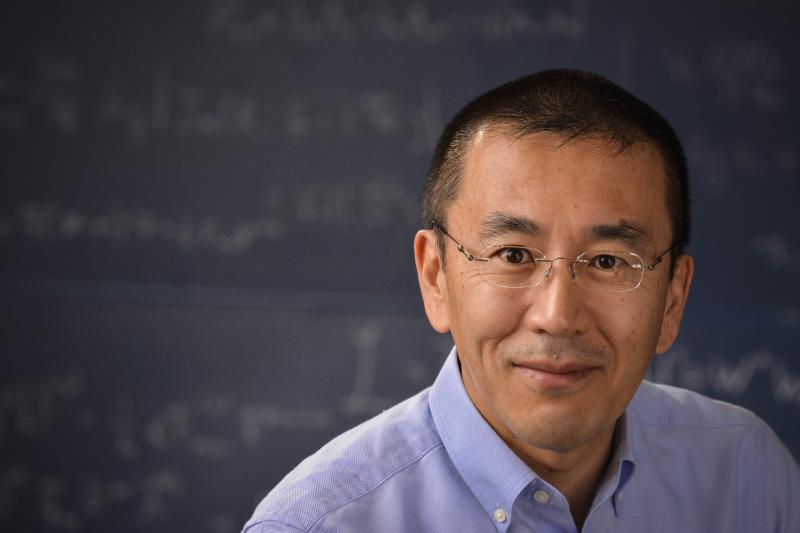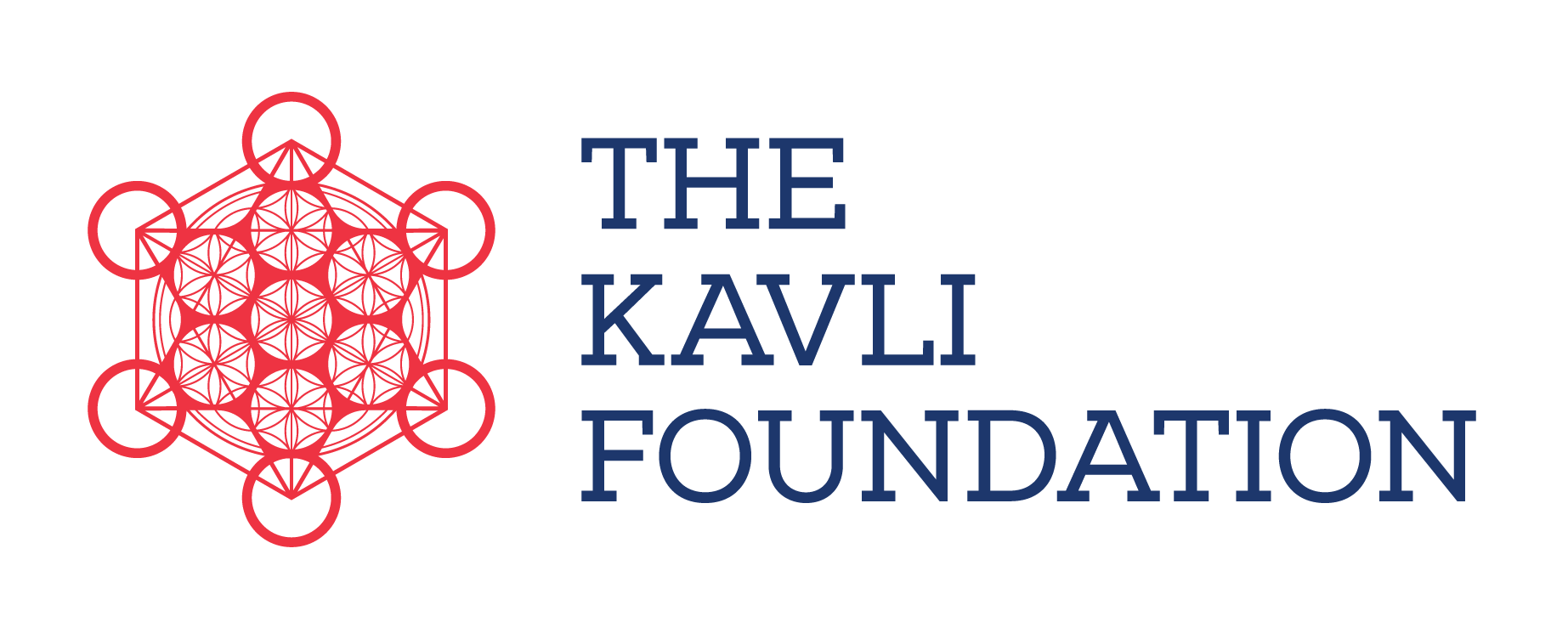Inaugural Address
October 15, 2018

It is a great honor to succeed Hitoshi as the second director of this institute. I have known Hitoshi for more than 30 years. First when he was a graduate student in Tokyo in the 80’s, then when we were both faculty members at UC Berkeley. For the last 11 years, I have been fortunate enough to have worked with him again at the Kavli IPMU and watched his leadership closely. Thanks to Hitoshi and the effort of many others, the institute has grown and flourished beyond my wildest imagination.
Over the last 11 years, the Kavli IPMU has produced high impact discoveries in mathematics, physics, and astronomy and has become one of the most attractive research destinations internationally. We have succeeded in training and mentoring students and young scientists, and many of them have landed distinguished academic positions at leading universities and research institutes all over the world. We have introduced new and more effective administrative practices, and our initiatives are transforming universities in Japan.
Nevertheless, I was still pleasantly surprised when the Kavli IPMU was chosen for the five-year extension, which started last year. Though there were many reasons I can think of why we should have been selected, it should not escape anybody’s attention that the research we do here is the most useless among those of the five WPI centers. It is significant that the Japanese government recognized the importance of the basic research we do here and care about, as something they should continue to promote.
Supporting basic science is a good investment in a long run, and there have been many testimonies to support the fact that curiosity driven research has produced enormous dividends to humanity.
In 1939, Abraham Flexner, the founding director of the Institute for Advanced Study in Princeton wrote in his essay that “Most of the really great discoveries which had ultimately proven to be beneficial to the mankind had been made by men and women who were driven not by the desire to be useful but merely the desire to satisfy their curiosity.”
More recently, Jean-Lou Chameau, the former president of Caltech said – this one I heard in person – “While we cannot pre-determine where scientific research will lead, we believe that true innovation comes when people can dream with freedom and focus. I believe that this philosophy of encouraging curiosity as well as the pursuit of what may appear useless knowledge remains an advantage of the country that needs to be protected and nurtured.” I found it impressive that Chameau, who is a civil engineer specialized in building roads and bridges, thought that pursuit of useless knowledge is of national interest.
The Kavli IPMU is supported by the three partners: the Japanese Government, the University of Tokyo, and the Kavli Foundation. We are grateful to Dr. Christopher Martin of the Kavli Foundation for being with us today. In this context, I believe the most important thing for us to do is to continue to demonstrate that we are worthy of their support, by producing ground breaking discoveries, by training and mentoring young scientists to become future leaders, and by inspiring systems reforms within the University of Tokyo and by spreading them to other universities in Japan. My job as the director will be to enable all of you to perform at the highest level, by supporting your research initiatives and by proving an ideal environment for your research.
Usefulness of useless research may be obvious to us here, but the idea does not come naturally to many outside of this building. We should not take their support for granted; we need to earn it. On my part, I will take every opportunity to explain the importance of what we do here and to communicate your achievements effectively to our partners and to the general public.
Four years ago, Peter Goddard, the former director of the Institute for Advanced Study, visited here, and Hitoshi and I had a round-table discussion with him. You can read the transcript of our conversation on the Kavli IPMU News. There are two things Peter told us at the time, which have stayed with me.
One is that a truly academic institution should stay focused within its defined mission.
The Kavli IPMU has been successful, and it is well-supported, both in terms of funding and of human resources. We have many significant research achievements and have earned a high reputation. This means that many attractive opportunities are coming to us, and there are many good things we could do with them. But, there are only a limited number of things we can do. Rather than trying to do every seemingly-good thing that could be done, we should carefully choose the research directions that we are excited about and believe in, and do them really well, identifying the most effective way to use our resources, taking calculated risks, and aiming to become the best in what we do. The choices we make should be guided by our mission.
The genius of the Kavli IPMU is in its mission, which is to solve the most fundamental questions about the Universe. The Universe is big, and it can accommodate all of us. There are many different ways we can study it from mathematics, from physics, from astronomy, and contribute to advancement of our knowledge, in astronomy, in physics, and in mathematics.
My own research has also been influenced by this mission. I am a string theorist, but my association to the Kavli IPMU has made me acutely aware that it is important to ask why and how my research is relevant to questions about the Universe. This has impacted the direction of my research, positively I hope.
When I was a high school student, I read the book entitled “Science and Method” written by Henri Poincaré, and it has had a big impact on me. Toward the end of this book, Poincaré asked himself, “Why do some research directions give large returns and others don’t?” He wanted to devote himself to research directions that give large returns – the question is how to identify them. His conclusion was that the best research directions are the ones that inspire and influence progress in a broader area of science. Poincaré wrote, “as these sciences developed, we have recognized more clearly the link which unites them – the map of universal science.” He compares such science as “the nodal point of the Gotthard Pass in Switzerland, from which water flows and feeds four different basins.”
In the Google parlance, it is science with high PageRank that gives large returns.
At the Kavli IPMU, we are ideally positioned to practice what Poincaré preached. Our common goal to solve fundamental questions about the Universe helps us place our work in the big picture. The questions about the Universe naturally motivate mathematicians, physicists, and astronomers to work together and to recognize their links – the map of universal science. Our mission is what unites us here. I will foster and enhance the environment where such collaborations thrive.
Another point Peter Goddard made at our round-table discussion was that one should have an idea about timescale for an academic institution.
Hitoshi started the IPMU with his grand vision, and it has worked extremely well over the last 11 years. I do not see any reason we should change this basic model at this point. But, we should not stay content. Some of the projects we started 11 years ago have matured, and we should build upon their successes to capture new opportunities. We have earned a high reputation, and many talented scientists want to come here to work with us. This means that there are things we can do that we had not been able to do before. It is a good time for us to reflect upon the progress we have made over the past 11 years and plan for our future, by making the most of our resources and opportunities available to us.
I believe the science at the Kavli IPMU should be driven by people. This is very different from 11 years ago, when IPMU started from nothing – no faculty members, no building. Now the most important assets we have are the people – and by that I mean you. Since the beginning of last month, I have met more than 25 scientific and administrative staff members at the Kavli IPMU to listen to their dreams, learn new opportunities, and to find out how we can support them. I will continue to do so in the coming months. I will also call upon some of you to work together to construct our long-term strategic plan for the next 10 years of the Kavli IPMU.
Finally, I would like to take this opportunity to affirm our commitment to provide an inclusive and supportive environment to the diverse group of people in our community. To realize our mission – solving the most fundamental questions about our Universe – it is essential that all of us treat each other with respect, maintain our professional working environment free of harassment, challenge our preconceptions, and educate ourselves on our own biases, so that everyone can bring out the best in themselves. In this intellectual environment, audacious ideas are encouraged and shaped by rigorous argument from diverse perspectives, and new avenues of research are explored and realized with freedom and focus.
Together, we will boldly go where no one has gone before.
Welcome to our 12th year at the Kavli IPMU. I look forward to working with you and serving this institute as your new director.
Hirosi Ooguri, Director
Kavli Institute for the Physics and Mathematics of the Universe,
The University of Tokyo Institute for Advanced Study,
The University of Tokyo






